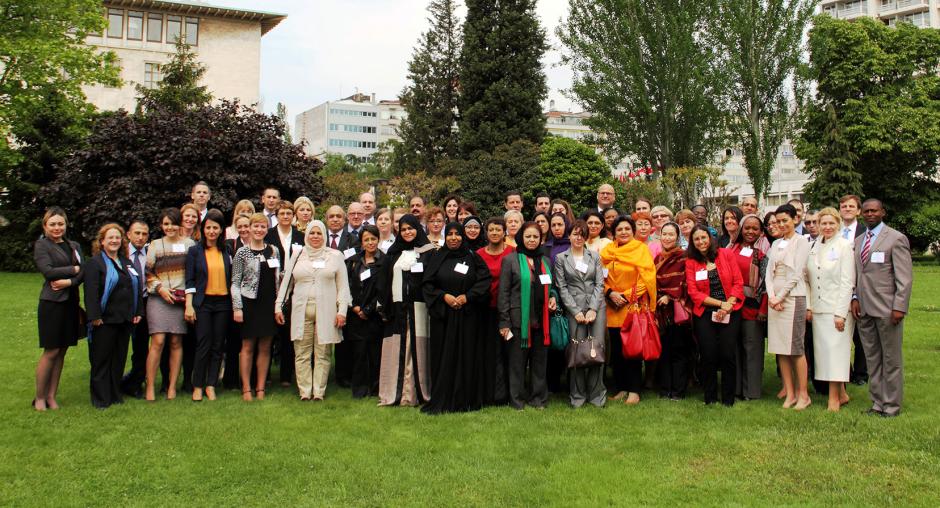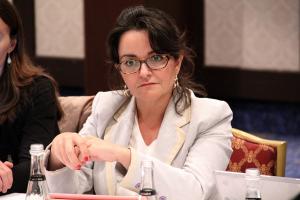Women, terrorism and counter-terrorism
Until recently, terrorism has been viewed predominantly as a male problem. In reality, women have been specifically targeted for terrorist radicalization and taken up action in violent extremist groups.
Women are also key to counter-terrorism efforts. Women play crucial roles in families, communities, educational institutions, law enforcement agencies and the broader public sector, and can bring important unique perspectives to understanding and countering violent extremism and terrorist radicalization.
In the last few years, some counter-terrorism initiatives have begun to recognize that only through a gender-sensitive and human rights compliant approach can counter-terrorism measures become sustainable and effective. These initiatives take into account how violent extremism, terrorism and counter-terrorism impact differently on women and men.
Governments and civil society have an important role in increasing the participation of women and factoring in their insights and experiences in counter-terrorism efforts.
This year, the OSCE together with the Global Counterterrorism Forum (GCTF), has been working together to promote gender-sensitive strategies, policies and measures to counter violent extremism and radicalization that lead to terrorism. The activities have emphasised empowering women to contribute to these efforts in different roles and capacities.
In Afghanistan I saw mothers convincing their sons to lay down their weapons, O'Connor @StateDept at #OSCE #women countering #terrorism
— OSCE (@OSCE) October 21, 2014
The OSCE and GCTF have organized two events, one for civil society and another for senior government experts on how to mainstream gender in efforts to counter violent extremism and radicalization that lead to terrorism.
Read more about the perspectives from some of the participants below.
“Law enforcement and military operations may be indispensable in countering terrorism, but it is putting a band aid on a wound that requires open heart surgery. We need to tackle the conditions conducive to the spread of terrorism and promoting gender equality should be part and parcel of these efforts.”
“Governments should invest more funding and efforts in preventing violent extremism, especially for partnerships with civil society organizations. Involving women in counter-terrorism and working with women’s organizations is essential to effectively oppose terrorism and promote social peace.”
“Terrorists are waging a war against universal education and critical thinking, because they know this is our strongest defense. The first school is the home and the first teacher is the mother. We need to train mothers, and fathers also of course, to help them safeguard their children against the appeal of violent extremism.”
“There can be no effective prevention against terrorist radicalization without the involvement of women, as educators, influencers and positive agents of change in their families, communities and broader society. But to realize this potential, women first have to be recognized, included and protected as full and equal citizens before the law, especially when they come from a minority background.”
“We should build women’s capacities beyond awareness raising and early warning against violent extremism, to also include them as shapers of counter-narratives and decision-makers, especially at local level. In parallel we have to engage and work with men so they acknowledge and support the role of women in countering violent extremism.”
“Mobilizing women’s networks has proven to be an effective strategy to promote peace and tolerance, which we can leverage to counter violent extremism and terrorism. We need to invest in ‘women diplomacy’ to build bridges across cleavages, promote dialogue and disengagement from violence.”







